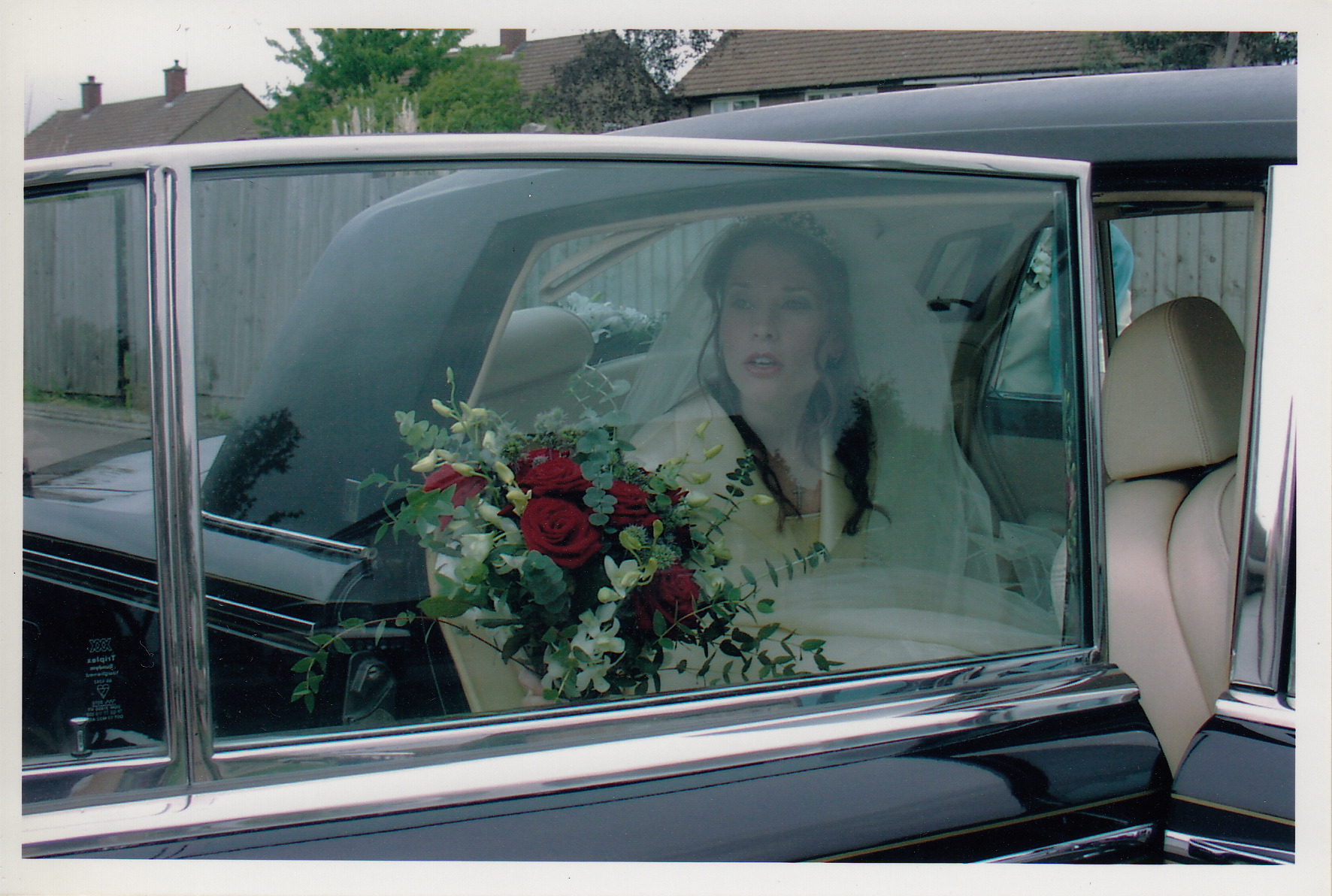Last week it was my husband’s and my wedding anniversary. We celebrated with hugs and kind words and time spent pottering about with our kids, getting on with the usual chores. In the evening we had a takeaway and dessert. In quiet moments I reflected on our almost 20 years together (13 of them as a married couple).

On the day of our wedding, it would have been good if, along with the marriage certificate, we were given a guide to negotiating the ups and downs of marriage, but as no one presented us with such a guide, like many other couples we bumbled along and came up with our own. Although it took a while to craft, it is, thankfully, short. It goes something like this:
- Love and respect each other.
- Communicate well.
And voila! That is it!
In the early days of marriage, when we were in our late 20s, it seemed so simple. We had it all figured out. Go us!
But you know what… we got older. We had kids. We were constantly tired. Number 2 sometimes seemed impossible. Simply because there was no time to communicate, let alone communicate well. Time seemed to have sped up and slowed down all at once. There was no time to just be. No time to be alone with each other. But equally, sometimes time stretched on forever… particularly when one of the children was ill or teething or going through a particularly challenging phase of development. You name it… it seemed to go on and on and on…. When we were childless, the importance of time spent together hadn’t even crossed my mind.
So in the glorious muddle of early motherhood I made a note to myself:
- Spend time together (with or without the kids, depending on their age & needs).
As the children became more independent and the hazy days of early motherhood began to clear I thought, Aha! We have more time now! We’re back on track. But you know what? We were now middle-aged. And you know what happens at middle age, don’t you? Yep. The midlife crisis.

But this wasn’t something that I’d ever considered in my 20s. The midlife crisis was only for men who had a penchant for motorbikes, wasn’t it? Turns out I was wrong.
Suddenly at the midpoint of our lives, it dawns on us that time is beginning to run out. We still haven’t been to Australia, won the Nobel Prize or travelled in outer space. This is the time of the midlife crisis, which Jung says is frequently marked in men by a period of depression around the age of 40, and at a slightly younger age in women.
Some women seem to hit the midlife crisis when their children have all started school and they suddenly have a bit more freedom. Others, especially those who are working full-time, seem to have a later one when the children leave home.
Jung, The Key Ideas, by Ruth Snowden
Whoa! This was serious stuff! And we both seemed to be going through it.
Not only are us middle-aged folk ‘psychologically vulnerable’ at this time, biology seems to be against us too. Our bodies are changing. Growing older. Hair falls out. Or turns grey. Hormones are in flux. Ovaries are on the downturn… For many women it is a last chance to consider having children. Men don’t experience quite the same fertility anxieties. Yet the possibility of other partners – younger spouses – often adds to the mix of the midlife crisis. As does realising that the ‘career-for-life’ (often chosen in one’s 20s) doesn’t quite turn out to be the right career. Where do you go from there – particularly when the weight of financial responsibility is on your shoulders? Job stuck. Heart stuck. Mind stuck. It all sucks.
I hope (I trust) we are through the worst of it, but you know what, it was sometimes rough. Sometimes more down than up. But what really helped was this:
- Communicating well.
Although there was the whole ‘figuring out how to communicate’ thing! In our 20s, talking to each other had always come easily, but real proper communication… well, first we both had to figure out how to do that. Turns out it’s dead simple. But hard. It consists of a) LISTENING to the other person WITHOUT JUDGEMENT (that’s a challenge!) and b) LISTENING to oneself and one’s own needs WITHOUT JUDGEMENT (again, harder said than done). After that, comes honest discussion, with solutions put forward for ways to work through the particular challenge. It’s about remembering that if you do still:
- Love and respect each other
in essence you’re on the other person’s side. So make time to talk. To listen. To find a way through a challenging time.
Also, in the midst of the midlife crisis muddles I remember thinking that self-reflection was (again) a real saviour. Figuring out that I was a highly-sensitive person as well as a limerent helped. So I added the following to add to the guide:
- Know thyself. (Though I think some Greek philosophers got there before me!)
Finally…
Midlife crisis, then, marks the return of the opposite, an attempt on the part of the psyche to re-balance. Jung says that this stage is actually very important, because otherwise we risk developing the kind of personality that attempts always to recreate the psychic disposition of youth.
Jung, The Key Ideas, by Ruth Snowden
So the last point I’d add to the guide is this:
- Be mindful of life’s rhythms, and how these rhythms and shifts in circumstances can affect a relationship. Wild beings (Wild Man and Wild Woman too) instinctively understand the importance of taking note of natural rhythms. There will be ups and downs; as long as number 1. (love and respect) is still there, one of the most worthwhile things to do is to hold on to each other and find a way through.
Beautifully expressed! And good for you! My husband and I, fortunately, survived the “middle” of our marriage, and are now thriving again. It took us many years to sort out these above-mentioned changes. The biggest one (we are a bit older than you) was changing our eating habits* (we ultimately went “Paleo”) to reduce mid-life weight gain, joint pain, brain fog, and low hormones. It really made a difference! Best to you!!! Dawn
* (reference: the book, Grain Brain by Dr. David Perlmutter – http://www.drperlmutter.com/5-keys-eating-better-brain-healthp/)
https://soulhorseride.wordpress.com/2014/10/30/ride-for-little-dawn/
Hey Dawn, thanks for stopping by and commenting. I’m glad that you can relate! (Very happy too that you’re both thriving. That’s excellent to hear!) And thanks for the tips re: diet. It’s something we keep talking about in a sort of ‘we need to sort out our diet’ way – so thanks for the incentive to get on it. All the best, M 🙂
Good girl! It really has helped, in every aspect of Life :))
I can identify with this midlife crisis feeling. In the run up to my 40th, I was panicking. I mainly felt that the 30’s had gone by too quickyl, lost in the fog of having children and although that is an achievement in itself, I felt I didn’t have anything to show for those years and I needed that reassurance. We’ve come through the otherside of early years childcare and also, now I’m past 40, it’s not as bad as I thought it would be. We will be celebrating 15 years of marriage at the end of this year.
Congrats on the (almost) 15 years of marriage. That’s a pretty spectacular achievement! And I’m glad that you could relate to my post. Although the midlife crisis is a bit of a cliche, I think it’s a cliche for a reason – it genuinely does affect many of us because there are a lot of changes happening to us – psychologically and physically. Sharing this kind of stuff is useful I think (and hope!). All the best, M x
Reblogged this on Patsy's Creative Corner and commented:
This is encouraging and is right where my husband and I are at. Exciting times.
Have a wonderful day and give someone you love a big hug! 😊
Thanks so much for the re-blog. Very much appreciated. I’m glad my post connected with you, and that you’re looking at the positives – it is an exciting time! Hope you have a great day too. My cat is here with me at the moment. Always good to hug her. M x
You’re welcome, Marija. It was my pleasure. It is an exciting time for sure. Our kids are both leaving on Wednesday; our daughter for the summer, and our son for 8 days in the wilderness for work. I would hug my dog more, but she’s 15 and doesn’t like it so much anymore. Have a wonderful day! 🙂
There is the chance of a real shift for me next year, if my son decides to go to University. I am excited for him, scared for him and upset to ‘lose’ him. Lots of things going around in my head. Life has its seasons, it is ever changing and we adapt or we don’t. Now in the last year of my forties, I feel a bit strange, but I am sure I will adjust.
Loved reading this post and nodded in agreement, a lot!
Take care xx
Gosh! I can see how if he does go to University that really will be a big shift. It’ll definitely be a mix of emotions. And you’re right: life has its seasons and we need to go with its rhythms. Sometimes it can feel like too much of a challenge though. Let me know how it goes. Sending love. xx
I meant to say Happy Anniversary too! 😊 💞
Thank you very much! 😀
I could have written so much of this myself! Glad you guys are coming through it. I am coming around to the idea that long term relationships are harder work than being single. I have many single friends who are so much happier in their day to day. These are good rules to live by though 🙂
Thanks for your comment, Renee. 🙂 And I think you’re right. In many ways it’s easier to be single, because more of one’s time and energy can go on personal needs and wants and goals. There isn’t another person’s needs/wants/goals in the mix. But then again, a big upside to having a loving partner is that you always know that there is someone on your side, come rain or shine. And that really is a wonderful thing. All the best. xx
Pingback: Luke Skywalker’s Midlife Crisis « Marija Smits
Pingback: On Bread and Love « Marija Smits